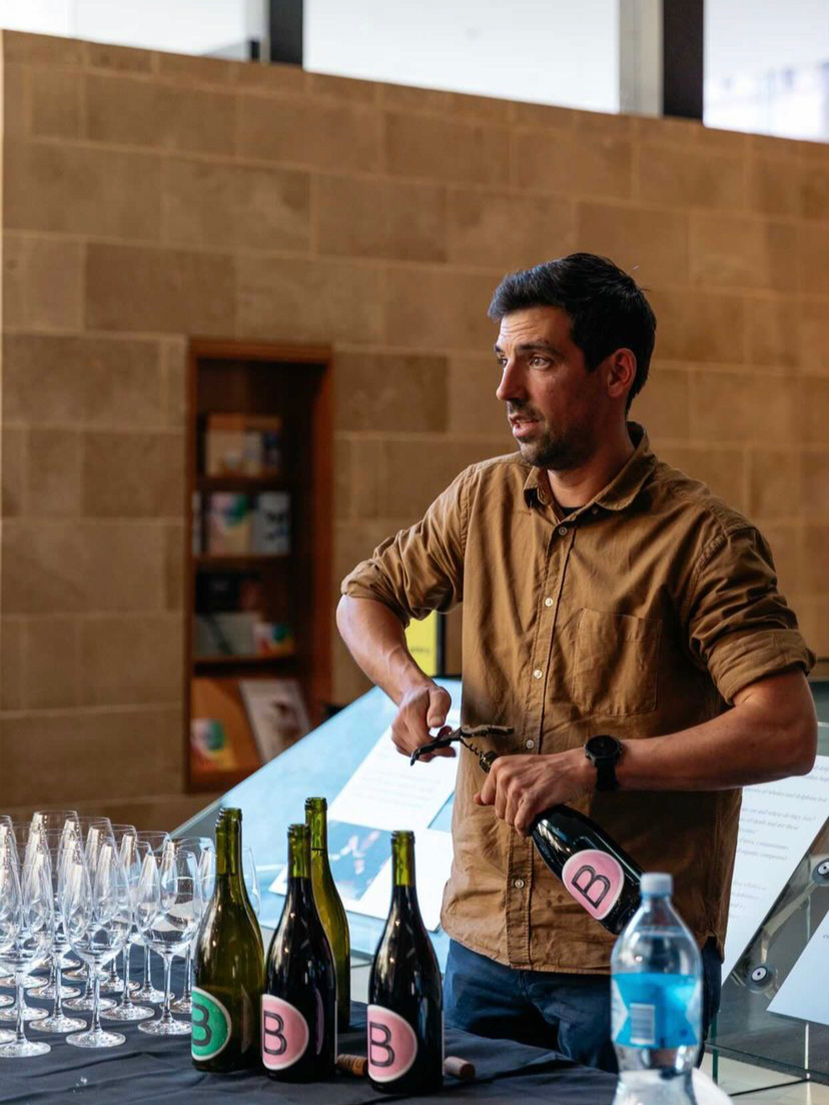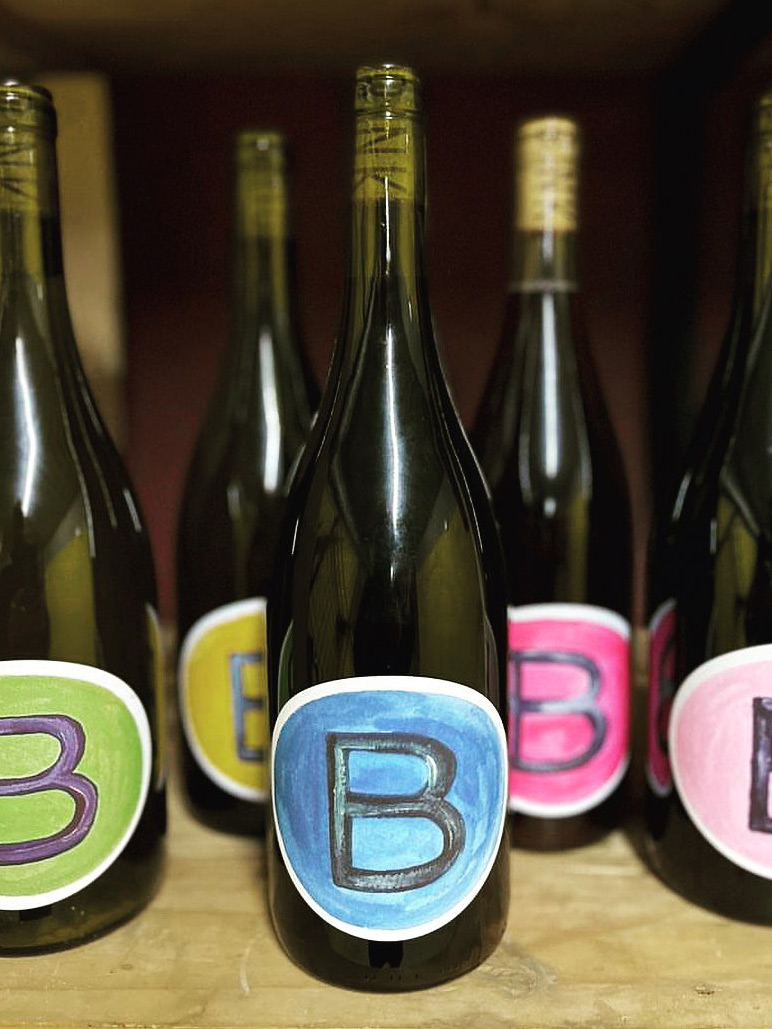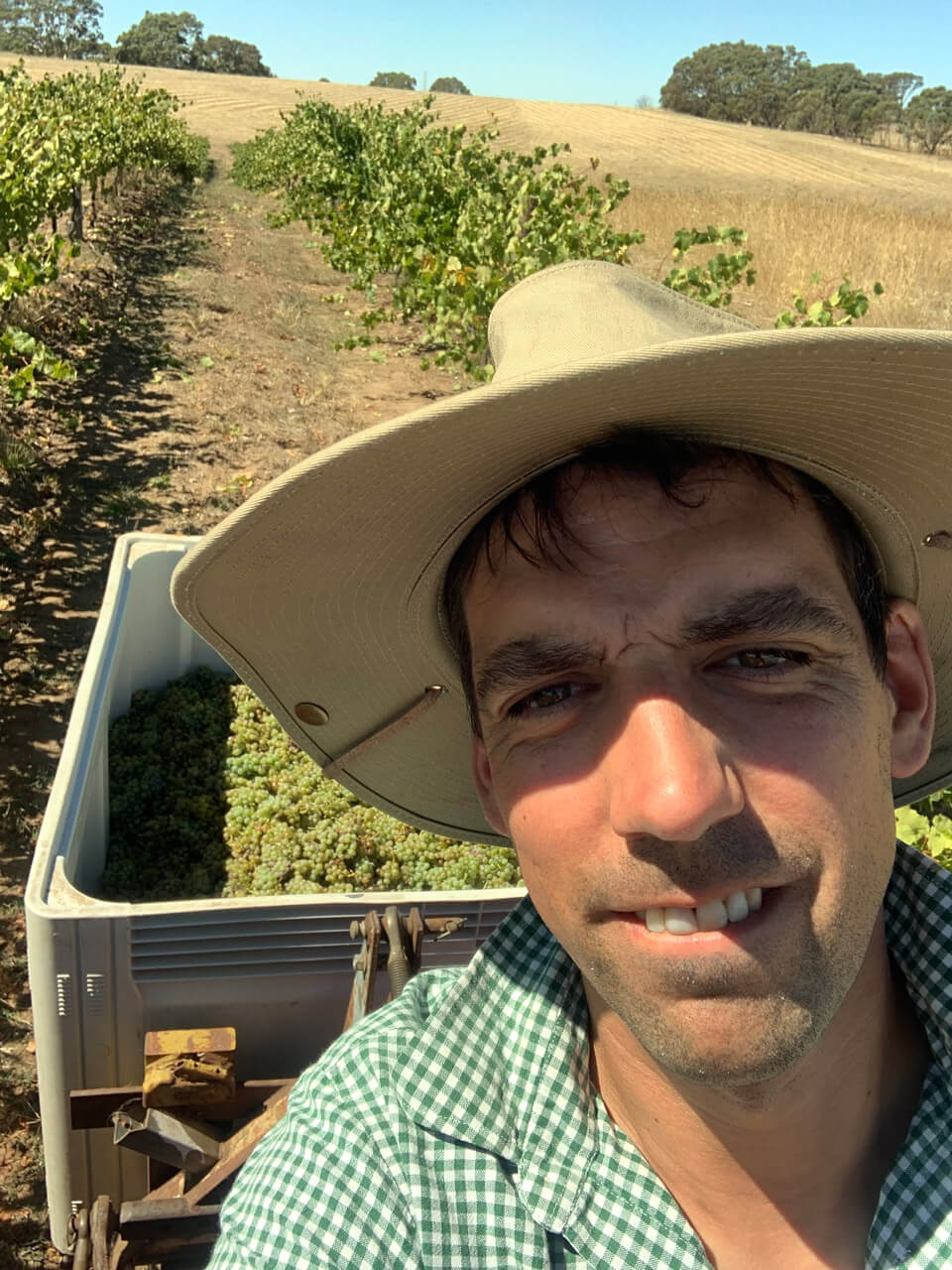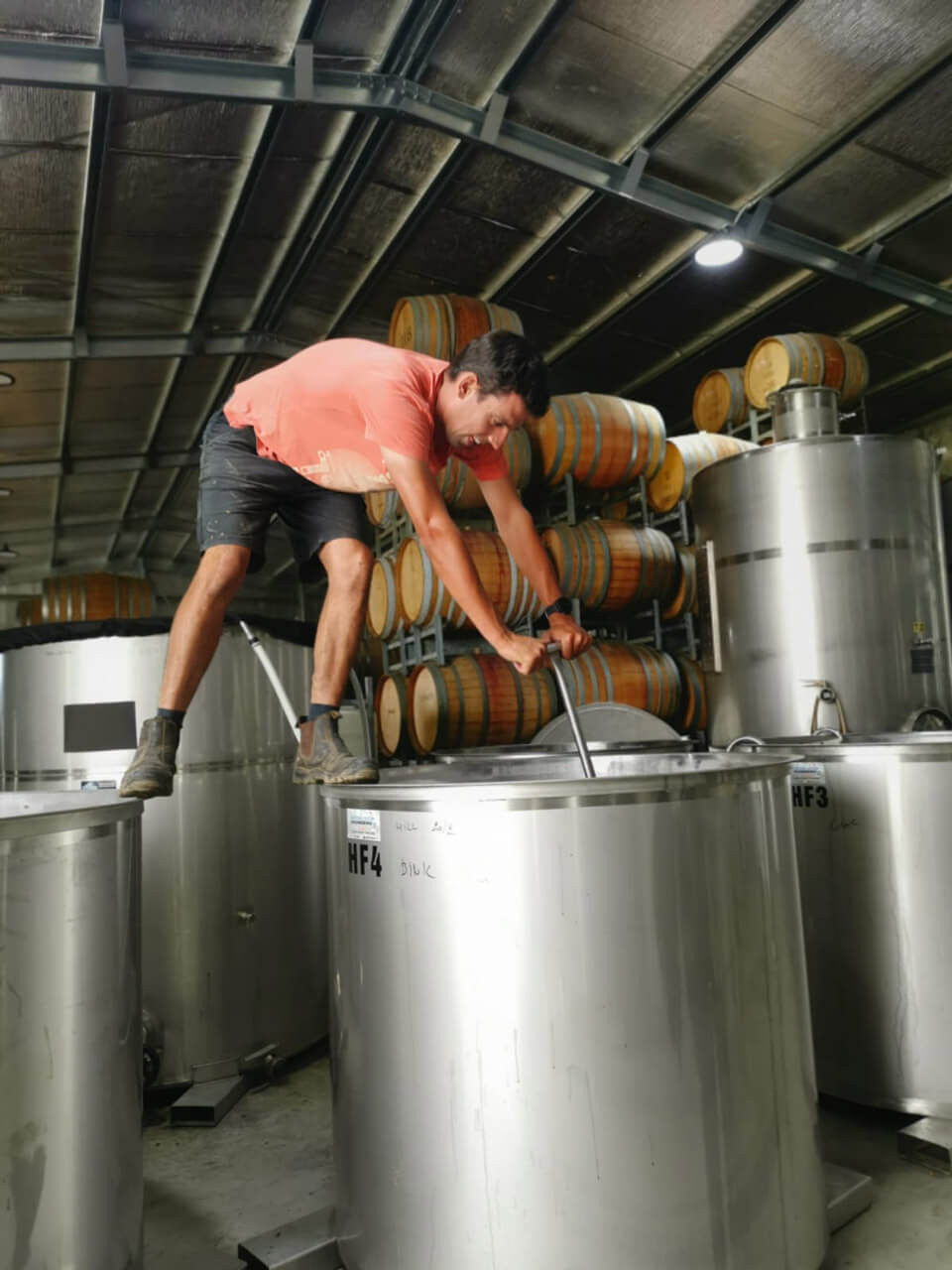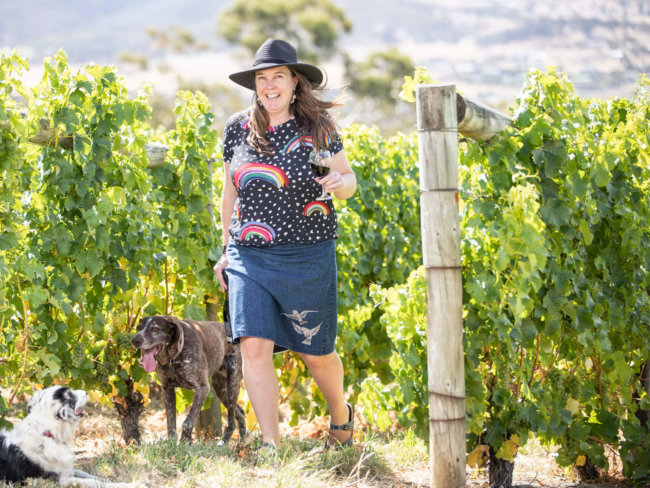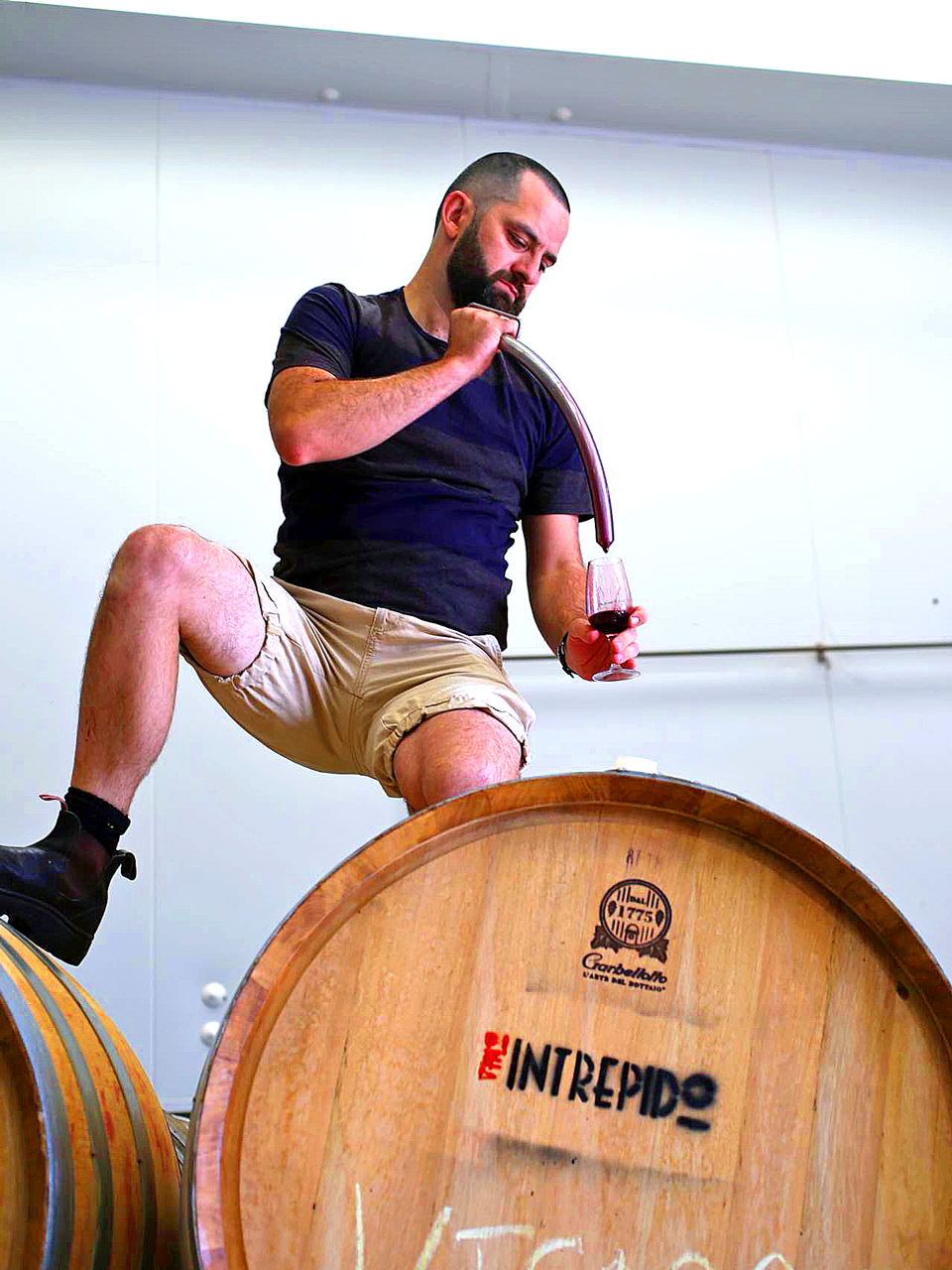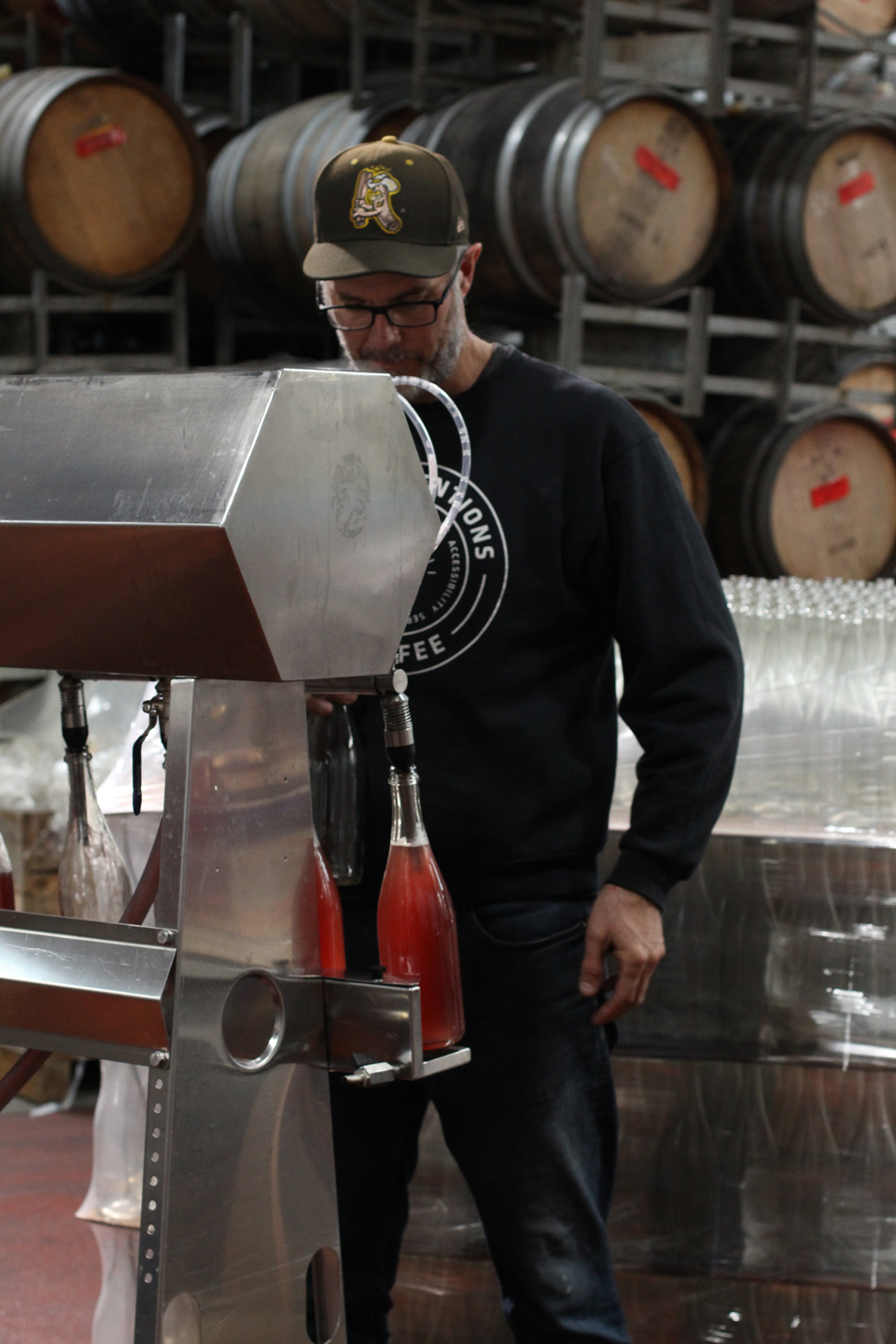The Bink label is part homage to Koen Janssens’ heritage, with the prominent ‘B’ an echo of the bumper stickers of the late 20th century, denoting Belgium, but it’s also a flag for the type of wine you’re about to drink. Designed by Janssens, the hand-drawn labels steer the drinker down a path suggesting minimal intervention and unconventional styles. Janssens focus is on varieties that excite him, from established stars like riesling and grenache to those less familiar, like alicante bouschet and zinfandel, coaxing out vibrant and fun expressions that speak of place.
“I really realised my signature in Bink wines,” says Janssens. “Wines that are overflowing with varietal characters, respect towards their origins in soil, orientation and variety but are super smooth on the nose and the palate. And I think I found my spot in terms of production. I have realised that I love working with petit verdot, zinfandel, carignan and malbec. I’m currently searching for more blocks of these, and maybe one day, I’ll even have my own vineyard.”
Koen Janssens opted into wine at an early age, studying hospitality at high school – or rather at a dedicated hospitality high school – with a view to becoming a sommelier. Once of age, he worked in Michelin-starred restaurants in his native Belgium, as well as in France and The Netherlands, for around a decade.
“I try to guide the wine to its own path, to capture a non-serious style of the variety. I’m a pretty happy chap that likes a joke once in a while. I’m def not going to make hyper-serious wines – it just doesn’t work with my character. I really enjoy the no-bullshit approach in my wines. Keep it simple and work with the fruit.”
Moving to Australia in 2012, Janssens landed in Adelaide, where he bumped glasses with the Natural Selection Theory gang of Anton van Klopper, Sam Hughes, James Erskine and Tom Shobbrook, who were in full flight at the time. A vintage with Erskine for Jauma followed in ’13, then with Van Klopper for Lucy Margaux in ’14, followed by four consecutive seasons in the winery with Pete Schell at Spinifex, where he still now works among the vines, pruning in winter.
“Both of them have had a massive impact on my wines,” says Janssens of Schell and Erskine. “James has the spiritual and human side, and Peter the technical, no-bullshit side. I still work with James and Peter. I planted vines at James’ new farm, and it was epic to see, listen and feel the way he wants to connect to his land.”
In 2015, Janssens started his first own venture with Dave Geyer (Geyer Wine Co.), the leftfield Yetti and the Kokonut – making rosé and white wines – with his solo project starting in 2017. “Peter Shell told me: ‘Every vintage you don’t make your own wines is a vintage you’ll never get back.’ So, I started Bink wines. I try to make wines that are easy going and fluid but with respect towards cépage and terroir.”
Janssens says that while his focus is on hard manual work in the vineyard and minimal intervention winemaking, his wines are as much shaped by his personality. “I try to guide the wine to its own path,” he says, “to capture a non-serious style of the variety. I’m a pretty happy chap that likes a joke once in a while. I’m def not going to make hyper-serious wines – it just doesn’t work with my character. I really enjoy the no-bullshit approach in my wines. Keep it simple and work with the fruit.”
Making wine in a rented space at the Heidenreich Vineyards, Janssens works with fruit he both sources and manages himself, from the Barossa and Clare Valleys and McLaren Vale. Alicante bouschet, riesling and cabernet franc come off his own leased blocks, while zinfandel, chardonnay, grenache and chenin blanc are all sourced.
“I’ve pruned the blocks and changed the spraying regimes to biodynamic spraying or mechanical weeding,” says Janssens of his vines. “With the pruning, I just took more wood off and encouraged more fruit set on logical sap flow to give the vine more directed energy, rather than having it all over the place. It resulted in better and more balanced fruit set with functional and open canopies. The conversion from hardcore sprays to sprays that work with nature was logical, and sometimes we could change to mechanical weeding.”
This approach, which leans away from chemicals and leans into more natural husbandry, is something that Janssens also works with his growers on. “I try to convert growers to organic/biodynamic growing because I don’t want my son to grow up in a ‘spray-for-your-life world’. I feel that the fruit just ferments better. I encouraged one grower to step away from sprays and Roundup, using mechanical farming instead, like discing and knifing. The block is on the valley floor and gets hot in summer. The soil has really seen a surge in green that keeps the moisture for longer and gives the vines more ‘sky water’ than stock-standard irrigation.”
Bink wines has become Janssens’ canvas for working with varieties that he loves, but he’s always on the lookout for unusual grapes, with the Bink offering never static, even blending cabernet franc and chenin blanc. “Finding the varieties that I want has been an interesting road,” he says. “I just keep networking and spreading the word for old and weird varieties, and hope some grower doesn’t pull out his 90-year-old dry-grown pedro ximénez and calls me instead.”
In terms of winemaking, Janssens follows a minimal intervention approach, with no additions bar sulphur at bottling and a minimal dose at the crusher to ensure a healthy ferment. And while he’s at pains that his wines are far from serious – and always accessibly priced – his deep experience of the great wines of the world informs everything he does.
“It’s so wanky to say but I absolutely love the ‘clear aspect’ in some French wines, that minerality aspect. Like almost watching fish swim in the Mediterranean ocean, just clear water. I’m really going for that and so far, I’ve realised that cooler ferments and fine lees are one step closer to that ideal.”

